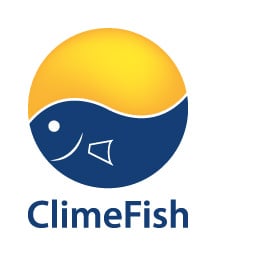
ClimeFish will make a European standard for how to incorporate climate aspects into management plans for aquatic resources In addition to the management plans developed for the specific cases in the project, ClimeFish will provide guidelines and good practice recommendations for how these types of management plans can be developed in general. The guidelines will…
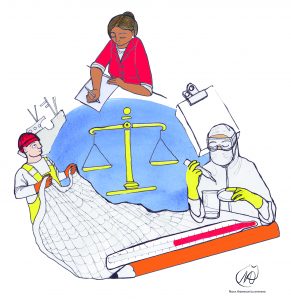
Within the ClimeFish project we develop 3 decision support software, one for each sector: marine fisheries – West of Scotland case study, marine aquaculture – Greek case study, lake and pond aquaculture – Hungarian case study. Although all three software are tailored to the specific needs of the sector and within the sector to the…
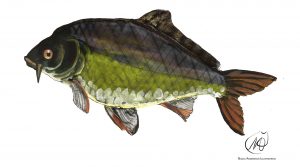
The Hungarian stakeholder meeting was held in Szarvas, Hungary, the 23rd of April 2018. The meeting, which lasted one day, was organized by the Research Institute for Fisheries and Aquaculture (HAKI) and attracted stakeholders from different sectors such as aquaculture farmers, policy makers, and representatives of non-profit organizations. At the meeting, the ClimeFish scientists presented…
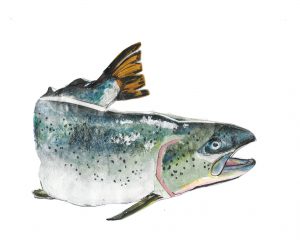
The Atlantic salmon case study stakeholder meeting was held in Oslo 5th of April From the ClimeFish consortium: Michaela Aschan (The climeFish coordinater, University of Tromsø), Bruce McAdam (University of Stirling), Elisabeth Ytteborg (Nofima), Øystein Hermansen (Nofima), Øivind Bergh (partner from CERES, Institute of Marine Research) Stakeholders: Silje Ramsvatn (Cermaq), Johan Johansen (Salten Havbrukspark), Stein…
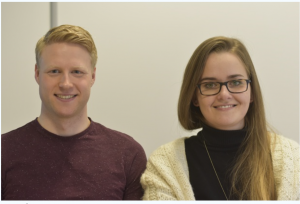
Matis helps determine strategies to tackle the effects of climate change in aquaculture, marine- and freshwater fisheries, some of which have already started to take place. Ragnhildur and Sigurdur, working on the Climefish project at Matis, recently sat down with a local newspaper in Iceland, Fiskifrettir (e. Fishery news), to discuss the ongoing project of…
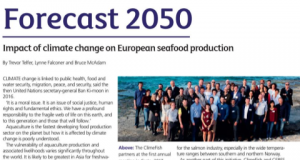
Using model outputs of climate change projections produced by the Institute of Marine Research (Norway), growth forecasting models of Atlantic salmon (salmo salar) has been formulated. The model combines the outputs from the Ewos EGI model and the dynamic energy budget (DEB) approach. Nofima (Norway) and the Institute of Aquaculture (Scotland) are using the model to forecast…
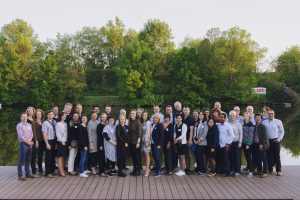
24th to 26th of April, 46 participants from the 21 institutions in ClimeFish met in Szarvaz in Hungary. Szarvaz is the headquarter of our Hungarian partners, HAKI. Gergö Gyalog from HAKI is the case study leader of the Hungarian implementation case. Agenda for the meeting: TUESDAY 24th of April 08:30-09:00 Registration / Sign-in 09:00-10:00 Welcome…
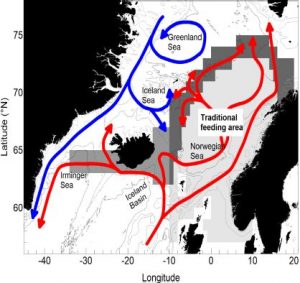
6 – 7 March 2018, ICES, Copenhagen The first stakeholder meeting for the C1F case study, which covers pelagic fisheries in the North East Atlantic, was held on March 6th – 7th, at ICES headquarters in Copenhagen. This case study is one of eight marine fisheries simulation case studies in ClimeFish, meaning that the work to…
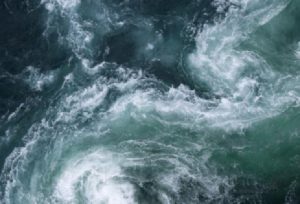
Building resilience to climate change in North East Atlantic fisheries (This is a summary of The EDF Climate Briefing Note) The Environmental Defense Fund (EDF) recognise that species’ shifts are occurring not just in Europe, but globally and are therefore working with key fisheries in Asia, South America and Europe to ensure robust fisheries systems…
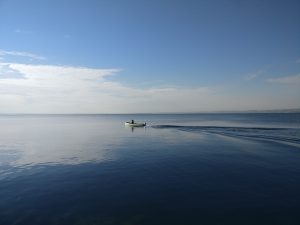
The first Stakeholders Event of the lake Garda case study has been held on January 17th 2018 in the town Garda (VR – Italy). This was the first stakeholders event of ClimeFish, and hence it was an important test to check the interaction protocol adopted within the entire project. Besides of the representatives of the…

